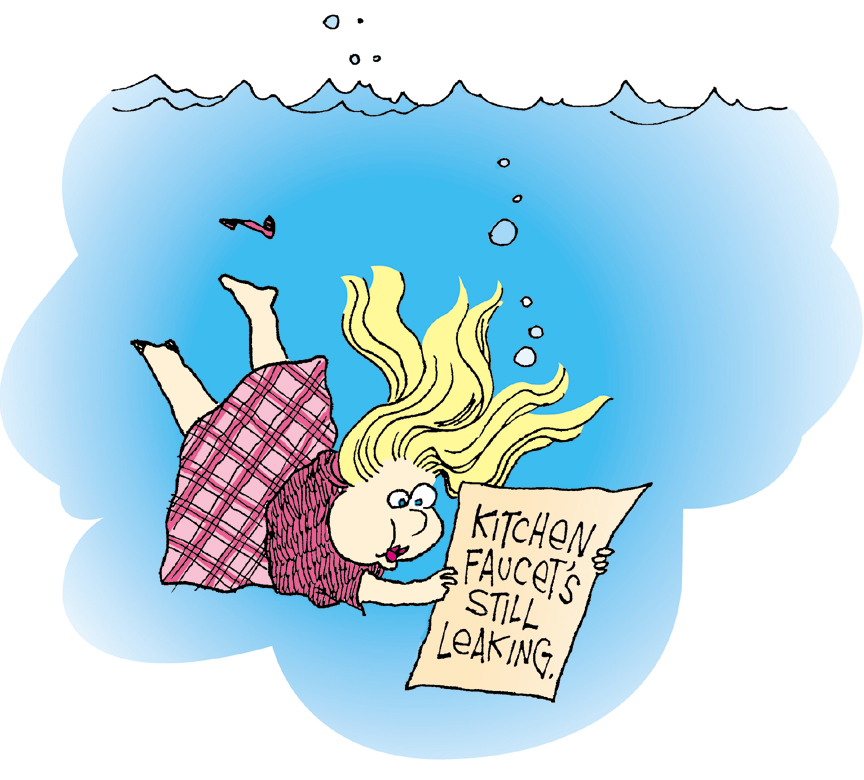Identifying Water Problems by Symptoms


When selecting a well water treatment system, knowing your water chemistry is the key to finding the right system. Your water chemistry can easily be determined by conducting simple water testing, using of of our test kits.


Testing to Determine Water Chemistry, Depending on the Problem
If you have never had your well water tested, or have recently constructed or serviced your well, it’s a good idea to have a complete general mineral, physical and bacteriological test done.
This includes common minerals, salts, metals, and bacteria. It should always include a pH test, which tells you how acidic or alkaline the water is. With these results, you can determine if you need any type of water treatment, and what type of system to select based on your water chemistry.
If you are trying to correct an aesthetic or corrosion-related problem, such as staining, pinhole leaks or odors, once again the general mineral analysis is also recommended (this time include minimum tests for iron, manganese, tannin, pH, total dissolved solids, hardness, and alkalinity). In some cases, additional tests for tannins are recommended.
For health-related issues, at a minimum include a test for total coliform, E.coli (fecal coliform). If infants and children will be drinking the water, a general, mineral, metals and a bacteriological test is recommended.
Physical Ways of Understanding Your Water Problems
You can often get an indication of any well water problems by a physical inspection of your water, appliances, fixtures, and plumbing.
However, sometimes the underlying water problem causing the symptoms of a water problem are not obvious. For example, corrosion of copper piping can be caused by acidic water (low water pH), but in other cases by water that is too alkaline (high water pH).
Odors, stains, and sediment can have various causes. It is critical to correctly identify the water problem that is causing the symptoms.
We recommend following the Well Water Treatment Cheat Sheet (below), to decide if your water needs further testing, whether or not you can fix it yourself, or if you need hire a professional as you may not always be correct in addressing the problem yourself.
Odor Identification and Solutions
Color Identification and Treatment
Treatment Solutions by Stain Type
Flakes, Particles, and Sediment
Well Water Treatment Cheat Sheet
Do The Basics:
- Test water chemistry
- Check well water flow rate
- Check for odors
- Perform toilet tank check
- Check water heater
- Check for pipe corrosion
Decide On Goals
- Treat water for one sink, or
- Test water for the entire home?
- Need to correct pH of water?
- Remove stains, sediment, odors, or bacteria?
- Improve water pressure?
- Disinfect water of bacteria?
Installation
- Buy direct and install yourself, or
- Buy direct and hire a plumber, or
- Buy from water treatment dealer
Quality Control
- Set up a maintenance schedule
- Test well water annually for bacteria and nitrate
- Test treated water regularly and keep records
Enjoy Healthy, High-Quality Water
- Water meets EPA standards
- No odor, stains, or sediment
- Non-corrosive to pipes and fixtures
- Free of bacteria, viruses, or parasites
- High-quality water for bathing and laundry
If you still have questions, don’t hesitate to e-mail us at support@cleanwaterstore.com, leave us a message on Facebook, or use our online contact form for prompt, personalized assistance from our trained professionals. Thanks for reading!
Recent Posts
Water Quality for Horses and Livestock: A Guide to Healthier Barns and Pastures
Clean water is the cornerstone of animal health and productivity. Whether you're raising horses, cattle,…
Clean Drinking Water for Cats: What Every Cat Owner Should Know
Why Clean Drinking Water Matters for Cats Hydration is critical to a cat’s overall health,…
Pet Hydration: What to Know About Water Safety
Clean Drinking Water for Dogs: What Every Dog Owner Should Know Clean drinking water is…
How to Ensure Fresh, Safe Water for Your Birds: Daily Care Tips for Bird Owners
Why Filtered Water for Birds Is Essential for Their Health Like food, clean drinking water…
U.S. Water Problems by Region: Common Contaminants & Solutions
Curious about U.S. water problems by region? Water quality isn’t just a national issue—it’s a…
Wildfire Water Contamination: How to Ensure Safe Water After a Fire
Wildfire Water Contamination: What You Need to Know After the Fires Drinking water contamination is…

